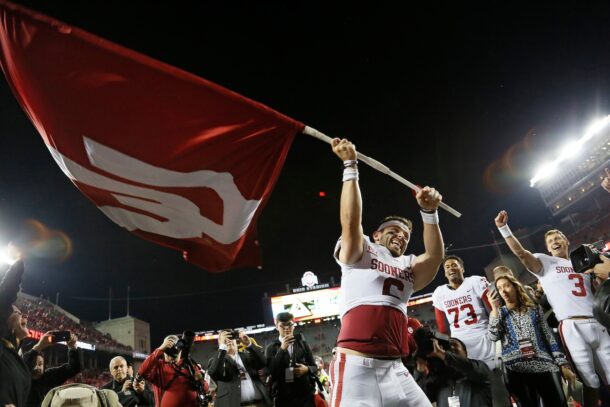SEC, Big Ten reportedly engaged in developing revenue-sharing plan with athletes
By Paul Harvey
Published:
The SEC and Big Ten are reportedly taking major steps toward the development of a landmark revenue-sharing plan with student-athletes. If finalized, the proposal would be a massive swing in the future of college athletics.
According to Dennis Dodd with CBS Sports, the two major conferences have discussed an unrefined proposal that would share revenue with players and potentially help settle a major “House v. NCAA” lawsuit that is set to go to trial in 2025. That antitrust lawsuit is a class-action complaint alleging NCAA and power conferences have conspired to suppress athlete compensation.
The plan is currently referred to as the “Modern Model.” According to Dodd, the discussions around revenue-sharing for the SEC and Big Ten came out of the joint advisory group that the two conferences entered into in February.
SEC, Big Ten developing plan to share revenue with players in potential landmark change to college athletics – https://t.co/Do0GY2YbwU https://t.co/sWtYbqtBUj
— Dennis Dodd (@dennisdoddcbs) April 30, 2024
Dodd’s report follows closely on the heels of a similar report from ESPN’s Pete Thamel and Dan Murphy. That story published Monday evening reports the leaders within college athletics are deep in discussions to reach a legal settlement to the “House v. NCAA” lawsuit.
That case, if decided in favor of the plaintiffs, could make the NCAA and member institutions liable to pay more than $4 billion in damages. That kind of number has “motivated many leaders” toward a settlement according to ESPN’s reporting, and any potential settlement is likely to pave the way toward future revenue sharing with the players.
RELATED: Ready to get into Daily Fantasy Sports this spring? Use SDS’s Underdog Fantasy promo code to get in on the DFS action during the NBA Playoffs and MLB’s regular season!
Veteran sports labor attorney Jeffrey Kessler, representative for athletes involved in the lawsuit, recently told ESPN he felt settlement would be the quickest route in this case and toward the transformation of college sports.
“I can’t guarantee this, but I think [the defendants’] lawyers have told them they’re in all likelihood going to lose,” Kessler said. “If they lose, the damages are going to be gigantic. Further, they’ve been told that it’s much better for them to be active participants in settling and deciding their future lives and fate than it is to let the court impose it on them.”
For now, there is still a lack of clarity on how things will look, but it does appear the push for revenue sharing is continuing to heat up.
Paul Harvey lives in Atlanta and covers SEC football.







